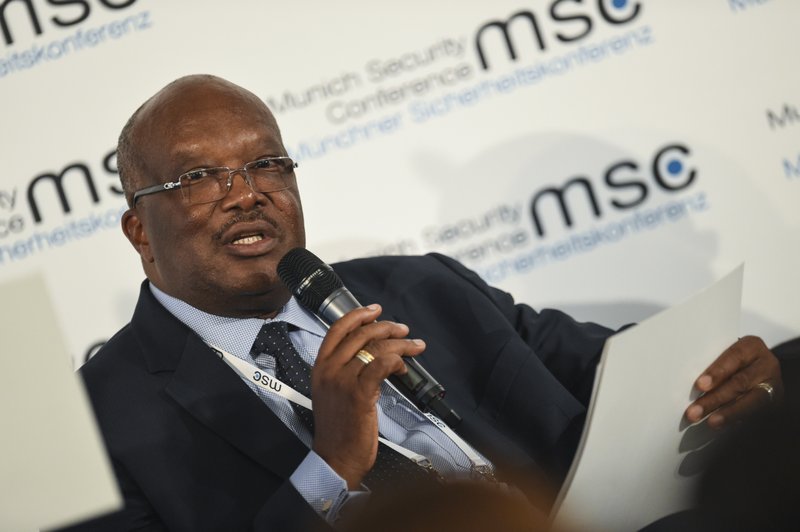West Africa’s extremism spreading as thousands flee homes


By Associated Press
West Africa’s extremist threat has moved into a new part of the vast Sahel region, with a previously calm area of Burkina Faso facing the kinds of assaults that have forced thousands elsewhere to flee over the past year.
Last week a police station was attacked by about 10 people in the eastern town of Natiaboani, killing one officer and wounding at least two others, according to governor Ousmane Traore. Some 470 ammunition cartridges were found at the scene, he said.
None of the several extremist groups roaming the region has claimed responsibility for the attack about 280 kilometers (174 miles) from the capital, Ouagadougou, which in recent years has been alerted to the jihadist threat by deadly attacks on high-profile hotels and cafes.
Burkina Faso now finds itself joining the front line of a growing regional war on extremism waged by a variety of actors, from France’s largest overseas military operation to a new five-country West African force backed by millions of dollars from the United States, wealthy Gulf nations and others.
But the landlocked, impoverished country has few resources for its own defense.
In a telling incident in the past week, some 20 policemen abandoned their station at Deou in Burkina Faso’s north to protest a lack of equipment, such as helmets and bulletproof jackets, to fight extremists. The deputy mayor, Moussa Sawadogo, said police also lacked gas to patrol the area in vehicles. The problem is shared by other security agents who say they don’t feel prepared to take on jihadists.
“The terrorism and criminal economy threatening the region vastly overwhelm the capacity of any individual country or region to adequately respond,” African Union Commission chair Moussa Faki Mahamat told the Munich Security conference on Saturday, saying the challenge needs a global solution.
Burkina Faso’s northern Soum province is home to radicalized preacher Ibrahim Malam Dicko, who has vowed to close all government administration there. His armed supporters have forced schools to close in several rural areas.
But Dicko is not the only threat. Northern areas near the border with Mali have been a regular target of attacks by various extremist groups, some of them vowing to step up deadly assaults in response to the recent deployment of the regional G5 Sahel force. The 5,000-strong force combines troops from Burkina Faso, Mali, Niger, Chad and Mauritania, with France leading the efforts to bring in international funding.
The countries’ troops join forces where and when they can. In response to the new violence in Burkina Faso’s east, troops from Burkina Faso and nearby Mali and Niger have increased patrols. Extremists are thought to be hiding in forested areas in the border region.
High-profile attacks continue, however. In January, 26 civilians from Burkina Faso including women and children were killed while heading to a weekly market when their truck struck explosives just over the border in Mali. Days later, gunmen killed two policemen as they patrolled a market in the northern district of Baraboule.
The deadly uncertainty has led thousands to flee. Teachers who have been threatened over perceived non-Islamic teachings have closed their classrooms and left. As of mid-February, some 98 schools have been closed in Burkina Faso’s Sahel region due to insecurity, according to the United Nations children’s agency.
In one of the country’s largest displacements, some 15,000 people in Soum province have fled their homes in the past year, said the International Committee for the Red Cross.
“This figure is far below reality because some have found shelter in households and others have refused to be registered,” said Christian Munezero, the Burkina Faso head of the ICRC.
Many of the displaced are herders and farmers who now have lost their livelihoods while on the run, he said, risking further destabilization of the region.